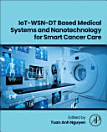Nanomaterials Recycling
Um þessa rafbók
Um höfundinn
Professor Mahendra Rai is a UGC-Basic Science Research Faculty Fellow and former head of the Department of Biotechnology, Sant Gadge Baba Amravati University, India. Presently, he is a visiting Scientist at the Department of Microbiology, Nicolaus Copernicus University, Poland. His areas of expertise include microbial biotechnology and nanobiotechnology. Currently, his group’s main research interest is green synthesis of metal nanoparticles particularly using fungi and their applications as nanoantimicrobials against pathogenic microbes. Prof. Rai has received several prestigious awards, including the Medini Award by the Government of India. He has been featured in Stanford’s list of the top 2% of scientists in nanoscience.
Tuan Anh Nguyen is Senior Principal Research Scientist at the Institute for Tropical Technology, Vietnam Academy of Science and Technology, Vietnam. He received B.S. in Physics from Hanoi University in 1992, and Ph.D. in Chemistry from the Paris Diderot University (France) in 2003. He was Visiting Scientist at Seoul National University (South Korea, 2004) and University of Wollongong (Australia, 2005). He then worked as Postdoctoral Research Associate and Research Scientist in the Montana State University (USA), 2006-2009. In 2012, he was appointed as the Head of the Microanalysis Department at Institute for Tropical Technology. His research activities include smart sensors, smart networks, smart hospitals, smart cities and digital twins. He edited over 70 Elsevier, 12 CRC Press, 1 Springer, 1 RSC and 2 IGI Global books. He is Editor-In-Chief of "Kenkyu Journal of Nanotechnology & Nanoscience".







